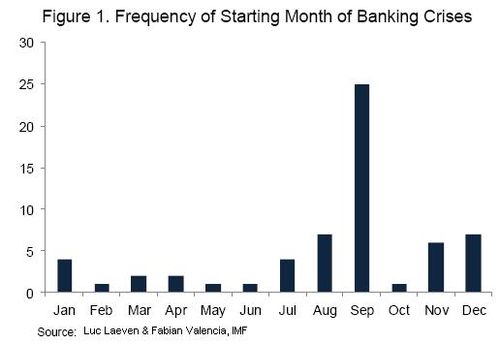German automotive industry at a crossroads
Kategoria: Business
The good news, according to a new IMF working paper, Systemic Banking Crises Database: An Update, is that financial crises are more likely to begin in September than in any other month, which suggests we may have a bit of time before the stuff (Europe, China, fiscal cliff, etc., etc., etc.) really hits the fan (hat tip to Free Exchange).

The bad news, however, is that no matter when the next disaster strikes — and it will — a lot of people are going to have a hard time coping with the economic fallout, based on the following Los Angeles Times report, „Two-Thirds of Americans Wouldn’t Survive a Financial Emergency”:
If the standard financial wisdom is true – that surviving a financial catastrophe requires a 6-month cache of emergency savings – then two-thirds of Americans may be in for a nasty surprise.
Only a quarter of U.S. adults have more than six months of funds set aside and readily accessible for such disasters; 28% had none at all, according to Bankrate.com.
Of the 1,000 survey respondents, 17% said they had three to five months of expenses squirreled away in case of job loss, sudden medical bills or other unexpected events; 9% didn’t answer the question.



